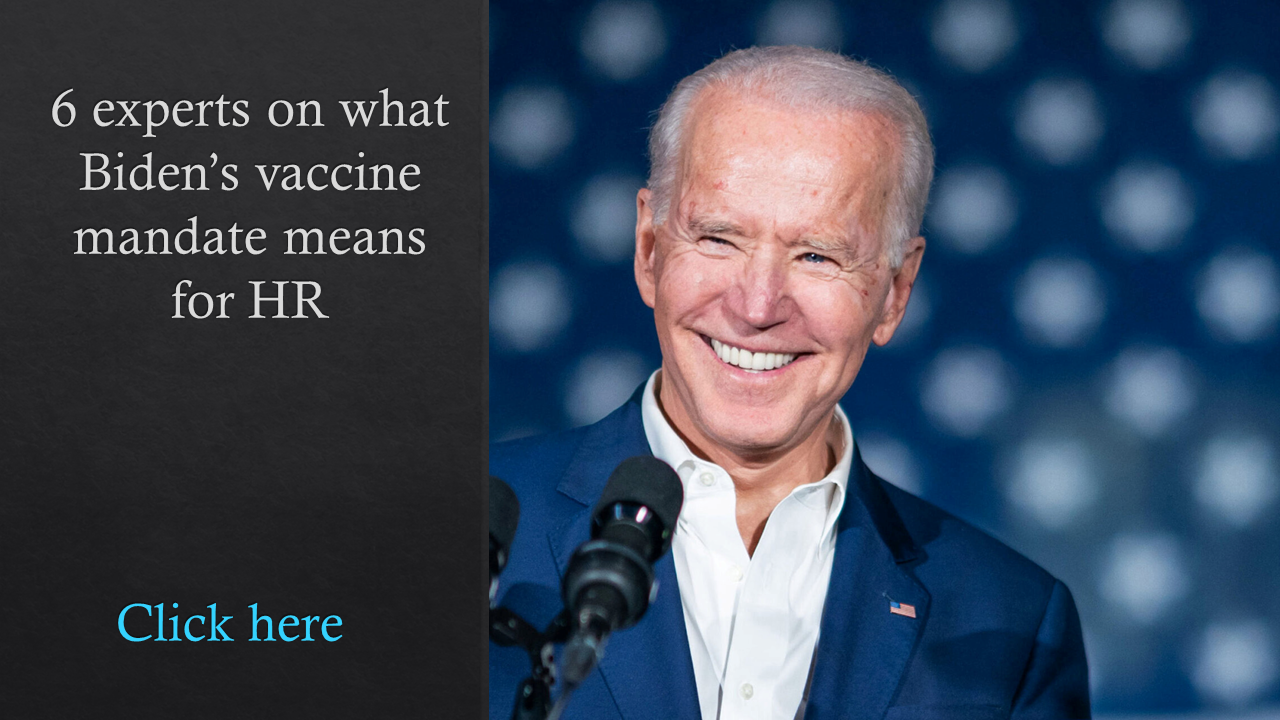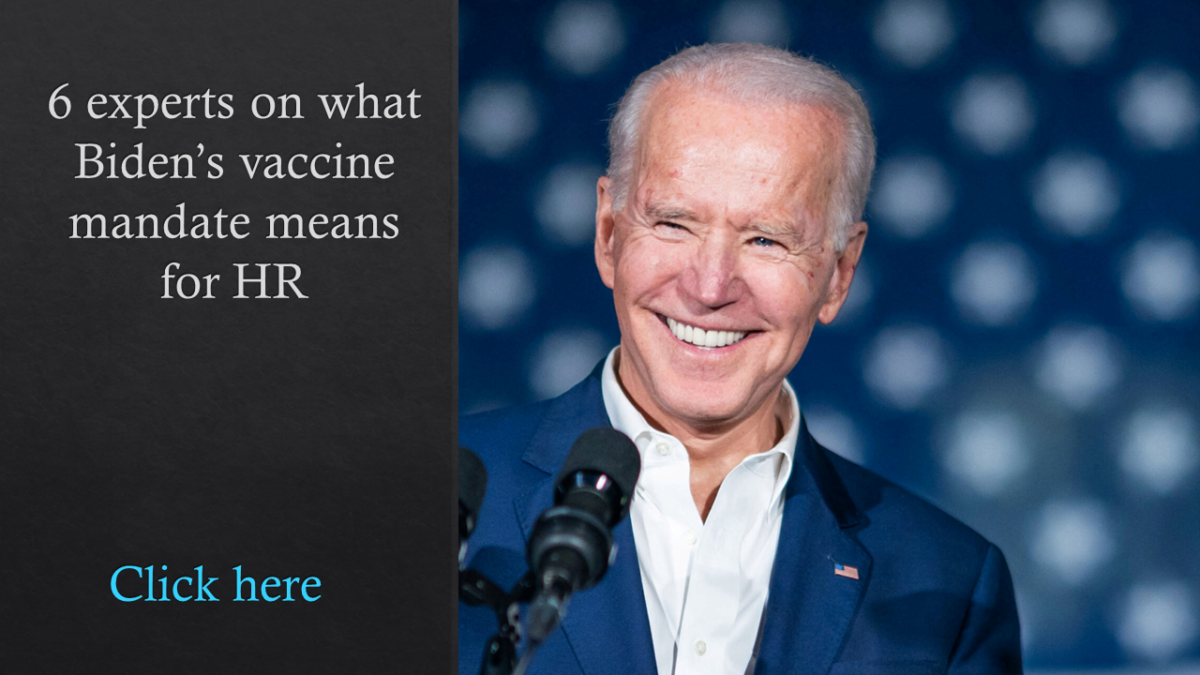As employers await final guidance on how to follow federal COVID-19 vaccine mandates and accommodate exemptions, experts advise leaders to put their strategies and tools in place now to be ahead of the game.
“Don’t wait; we know we’re going to have to do something,” says Tamika Newson, assistant vice president and legal counsel of Unum’s Employment Law Group, who spoke during a recent HRE live stream. “Get your HR and legal staff prepared now for what’s coming next.”
Although there are still many unknown details of the OSHA guidelines and how they will be implemented, President Biden announced the core of the mandate last month and that isn’t expected to change: that employees at organizations with 100 or more employees must either be vaccinated or tested weekly, with some subject to medical and religious exemptions, says Ellen McCann, assistant vice president and legal counsel of Unum’s employment law group.
 “While we don’t know what tests will be acceptable or who will pay for the tests, what we do know is it will be a pretty significant burden for both the employer and employee,” McCann says. “Weekly testing will be a significant burden.”
“While we don’t know what tests will be acceptable or who will pay for the tests, what we do know is it will be a pretty significant burden for both the employer and employee,” McCann says. “Weekly testing will be a significant burden.”
She points to the existing guidance for federal employees and contractors and believes OSHA will follow a similar path for private employers, and expects a final review and release from OMB any day now.
“Employers will have to actually look at test results, or in the vaccination world, at their vaccination card or other proof,” she says.
Having a tech solution is what employers want to think about, McCann says, because it will be impossible to manage spreadsheets with everything that’s required: your employees, their vaccination or testing status, including when they have been or need to get tested, and other details.
“This is where tech can help, especially if you have a self-service solution where [HR] can go in, take a peek at the picture and make sure it’s valid,” she says. “And if the tech solution can proactively reach out to remind employees to get tests/results in the system, that’ll take a load off the HR person responsible for this.”
Related: Mandating vaccines? How tracking tech can help with the next step
Ultimately, when rolling systems out to employees, HR will want to consider a solution that is very self-service and helps employees where they are now, said Preetha Sekharan, VP of digital strategy and transformation at Unum.
“Guidelines are still evolving,” Sekharan says. “When you think about a tech solution, look for flexibility … you may need to change the process with your employees.”
She also advised to keep in mind the limited shelf life of the tech tools as employers are looking to invest, she added. “Fingers crossed this is only for the next one or two years, but how you make an investment will be critical.”
 As for exemption and accommodations, Newson advises employers to stay on top of the guidelines coming out of such agencies as the CDC, EEOC and others. On Monday, for example, the EEOC issued new guidance for how employers should handle requests for religious exemptions from the vaccine mandate. According to the guidance, employers can ask employees if they have a bona fide religious belief for not getting inoculated. “It’s a fine line employers have to walk, but you can ask these questions and make decisions,” she says.
As for exemption and accommodations, Newson advises employers to stay on top of the guidelines coming out of such agencies as the CDC, EEOC and others. On Monday, for example, the EEOC issued new guidance for how employers should handle requests for religious exemptions from the vaccine mandate. According to the guidance, employers can ask employees if they have a bona fide religious belief for not getting inoculated. “It’s a fine line employers have to walk, but you can ask these questions and make decisions,” she says.
In the end, McCann recommends employers just stay informed.
“Keep your alerts on. Make sure you’re checking your blogs and sites,” she says. “You need to know as soon as something passes that you’re ready to go and can put something in place as soon as we see something more definitive.”
Related: Sign up here to receive HRE’s newsletters.
Watch the panel discussion below
